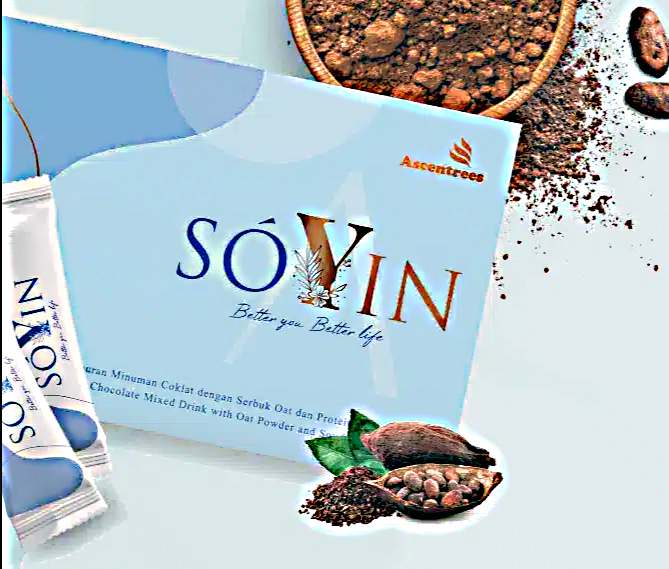
Recognition and Certification for Meal Replacements in Malaysia : SoYin
Ensuring Trust and Quality: Key Aspects of Recognition and Certification for Meal Replacements in Malaysia the SoYin
Introduction:
As the popularity of meal replacements continues to surge in Malaysia, consumers are becoming increasingly discerning about the products they choose to incorporate into their daily routines. In a market flooded with options, recognition and certification play pivotal roles in guiding consumers toward trustworthy and high-quality meal replacement choices. This article explores the essential components that recognition and certification should encompass for meal replacements in Malaysia, SoYin, ensuring consumers can make informed and confident decisions.
1. Regulatory Compliance:
One of the foundational aspects of recognition and certification for meal replacements in Malaysia is adherence to regulatory standards. Certification bodies should thoroughly evaluate products to ensure they meet the guidelines set by relevant health and food safety authorities. In Malaysia, this may involve compliance with regulations from the Ministry of Health or other regulatory bodies. A meal replacement product that has obtained the necessary regulatory approval provides consumers with assurance regarding its safety and adherence to established quality standards.
2. Nutritional Accuracy and Transparency:
Certification should extend beyond mere compliance and delve into the nutritional accuracy and transparency of meal replacement products. Recognition from reputable certifying bodies should validate the nutritional claims made by manufacturers. This involves scrutinizing the ingredients list, assessing the accuracy of nutritional information, and ensuring that the product delivers on its promised health benefits. Transparency in nutritional labeling is crucial for consumers in Malaysia who seek to make informed choices aligned with their dietary goals and health requirements.

3. Halal Certification:
In a multicultural and diverse society like Malaysia, where a significant portion of the population follows Islamic dietary guidelines, obtaining Halal certification is paramount for meal replacement products. This certification ensures that the product is prepared in accordance with Islamic principles and is free from any non-Halal ingredients or cross-contamination. For broader market acceptance and to cater to the preferences of Muslim consumers, obtaining Halal certification is a key aspect of recognition for meal replacements in Malaysia.
4. Quality of Ingredients:
Certification should encompass an evaluation of the quality of ingredients used in meal replacement products. Consumers in Malaysia are increasingly conscious of the sources of their food, and certifications should validate the use of high-quality, natural, and minimally processed ingredients. Recognition from certifying bodies that focus on ingredient quality adds credibility to the product, assuring consumers that they are making a wholesome and nutritious choice.
5. Sustainability Certification:
As environmental concerns become more prominent, consumers in Malaysia are looking for meal replacement products that prioritize sustainability. Certification from recognized sustainability bodies can validate a product’s commitment to environmentally friendly practices. This includes sustainable sourcing of ingredients, eco-friendly packaging, and overall efforts to minimize the product’s environmental footprint. Recognition for sustainability practices aligns with the values of environmentally conscious consumers in Malaysia.
6. Allergen Management:
Certification for meal replacements should thoroughly assess and validate the effectiveness of allergen management protocols. The prevalence of food allergies and intolerances necessitates meticulous attention to allergen control in the production process. Recognition from certifying bodies ensures that the manufacturer has implemented measures to prevent cross-contamination, clearly labels potential allergens, and follows best practices to safeguard consumers with dietary restrictions.
7. Third-Party Audits and Inspections:
To enhance credibility, meal replacement products seeking recognition and certification should undergo third-party audits and inspections. These independent assessments provide an unbiased evaluation of the manufacturing processes, quality control measures, and overall compliance with certification standards. Consumers can trust products that have undergone rigorous third-party scrutiny, knowing that the manufacturer is committed to upholding the highest quality and safety standards.
8. Continuous Improvement Commitment:
Recognition and certification should not be viewed as one-time achievements but rather as an ongoing commitment to quality and improvement. Certifying bodies should require manufacturers to demonstrate their dedication to continuous improvement through periodic assessments and updates. This ensures that certified meal replacement products in Malaysia remain aligned with evolving nutritional science, industry best practices, and consumer expectations.
Conclusion:
In the dynamic landscape of meal replacements in Malaysia, recognition and certification serve as invaluable tools for both consumers and manufacturers. Certifications that encompass regulatory compliance, nutritional accuracy, Halal certification, ingredient quality, sustainability, allergen management, third-party audits, and a commitment to continuous improvement contribute to building trust and confidence among consumers. As the market continues to expand, a robust framework for recognition and certification will play a crucial role in guiding consumers toward meal replacement products that prioritize safety, quality, and nutritional excellence.
#SoYin
#meal replacement Malaysia
#Ascentrees Malaysia
Want to know more about meal replacement Malaysia? read this: